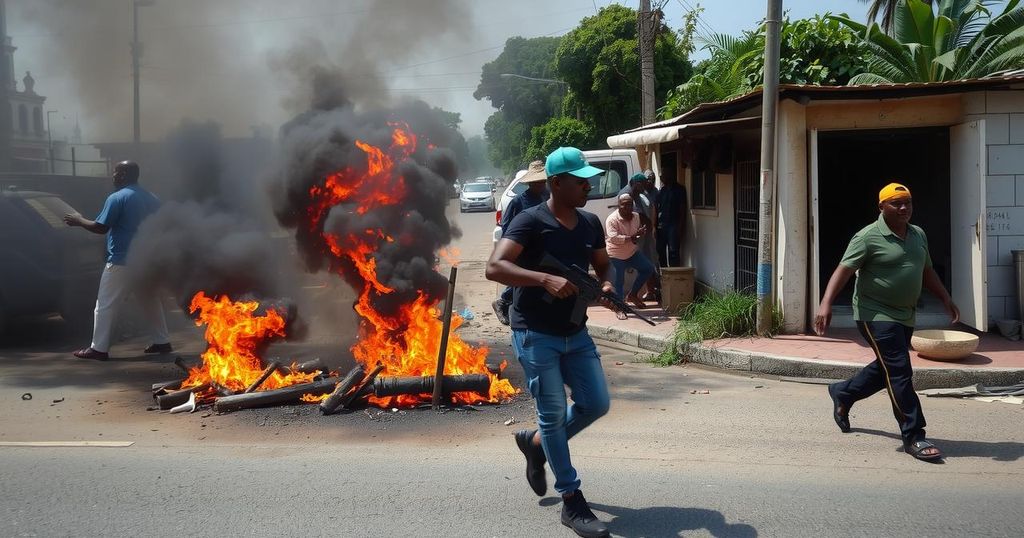In Mozambique, approximately 125 individuals have been killed in three days of violent protests against presidential election results. Opposition-led demonstrations erupted following the confirmation of Daniel Chapo’s victory, claiming irregularities in the election process. The unrest has led to widespread clashes with police and acts of vandalism across major cities.
In recent days, Mozambique has witnessed escalating violence following the announcement of presidential election results. A non-governmental organization has reported that approximately 125 individuals lost their lives within a span of three days due to clashes arising from opposition-led protests against the election outcome. The unrest has involved significant protests, resulting in confrontations with security forces, widespread looting, and even a mass jailbreak near the capital, Maputo, which claimed additional lives.
The chaos ensued after the country’s highest court confirmed that Daniel Chapo of the ruling Frelimo party won the presidential elections held on October 9, securing 65.17% of the votes. Despite allegations of electoral irregularities raised by international observers, the ruling was met with fierce resistance from opposition groups, leading to violent demonstrations in major cities. Buildings have been set ablaze, and public disturbances resulted in extensive vandalism.
As of now, the toll from the violent outbreaks has reached 252 deaths since the onset of the unrest earlier this month. The areas most severely affected include the capital, Maputo, and the provinces of Nampula and Beira. Moreover, over 4,000 arrests have occurred since the protests began, with 137 arrests reported in just the last three days. In light of the violence and disruptions, opposition leader Venancio Mondlane, who is currently in exile, has accused the authorities of exacerbating the situation to facilitate the declaration of a state of emergency.
The ongoing tensions in Mozambique stem from a lack of trust in the electoral process, where the ruling Frelimo party has maintained power since the end of the civil war in 1975. The recent election results, which awarded Chapo a decisive victory despite claims of misconduct, highlight the significant divides between the government and opposition factions. These divisions have led to unrest, as opposition supporters express their discontent through demonstrations, which have unfortunately escalated into violence. The government’s response has involved crackdowns on demonstrations, provoking further anger among the populace and sparking accusations of state-sponsored violence against dissenters.
The violence in Mozambique represents a critical juncture in the country’s political landscape, as protests against perceived electoral injustice escalate into deadly confrontations. With rising casualty figures and widespread unrest dominating the narrative, the situation necessitates immediate attention from both local and international entities to foster dialogue and restore peace. As the government grapples with allegations of election rigging, the future of democratic processes in Mozambique remains precariously balanced amidst ongoing turmoil.
Original Source: www.rfi.fr






